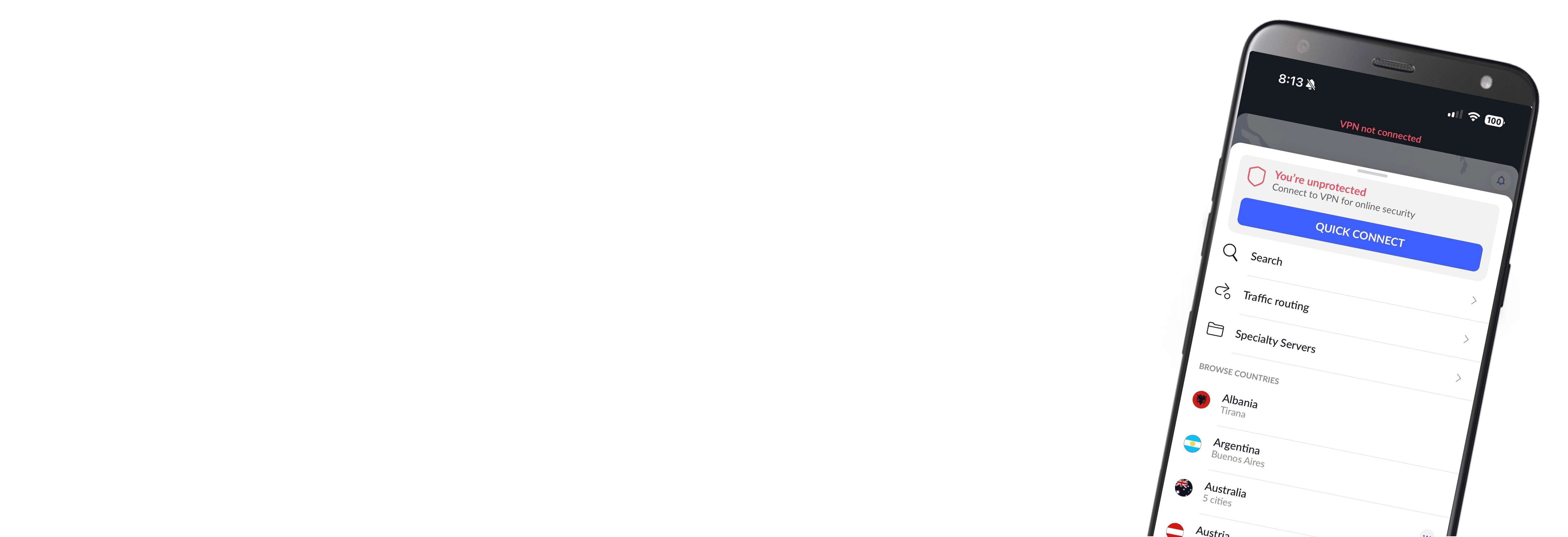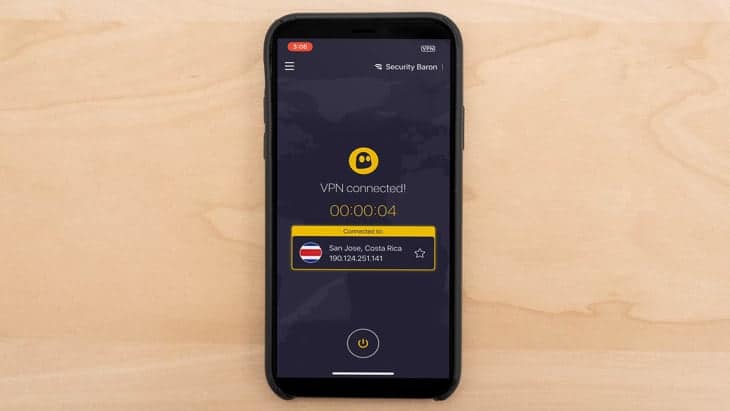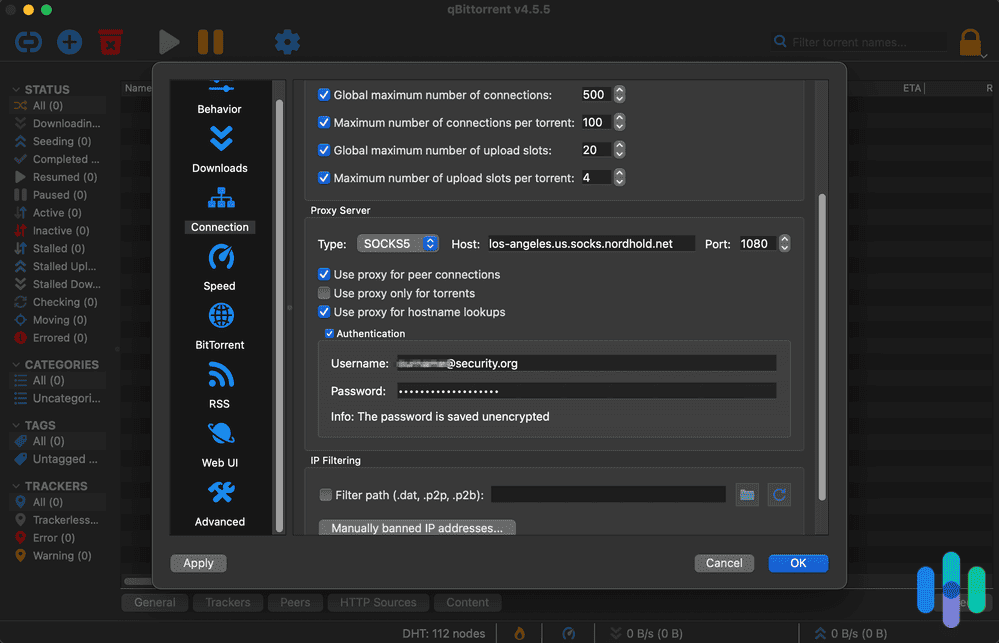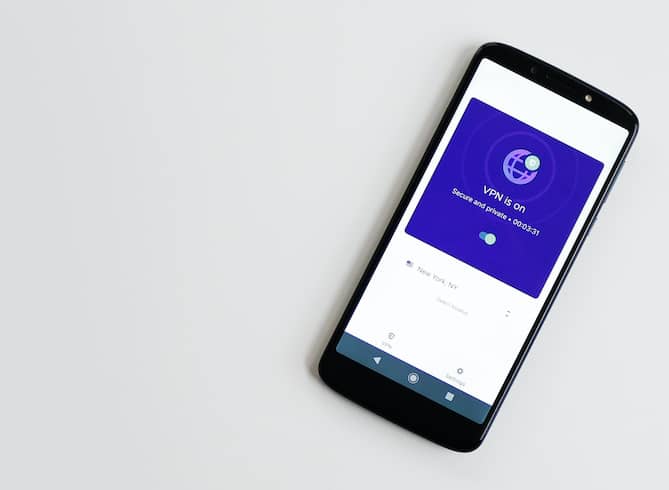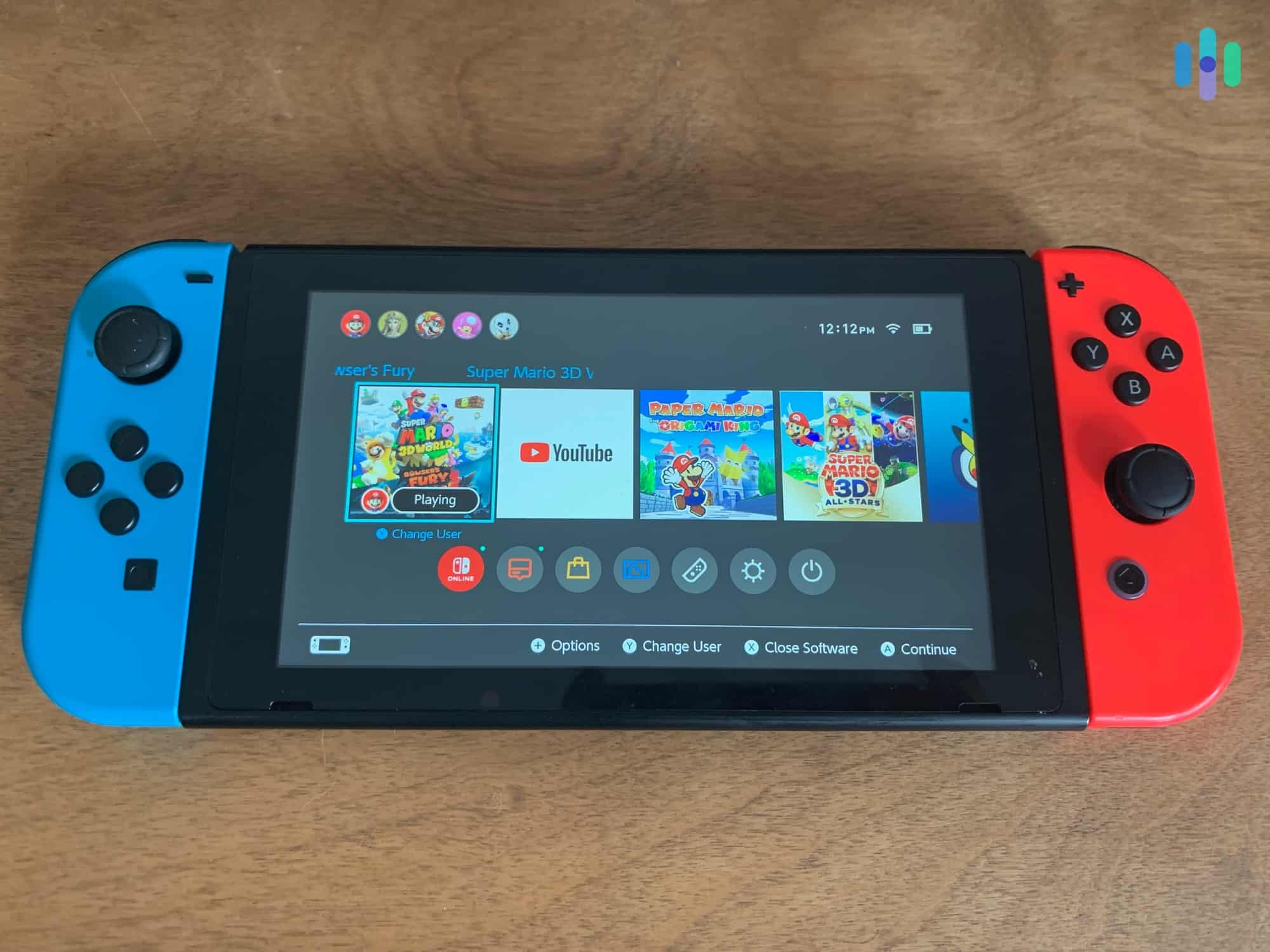VPNs can do incredible things for your privacy and online freedom, and we recommend everyone to use a VPN. That is, if it’s legal in your country. As it turns out, VPNs are not legal everywhere. So before you use a VPN, see whether or not it’s legal in your country.
Is Using a VPN Legal?
In the U.S., it’s legal to use VPNs; even the FBI recommends them for more online privacy.1 If you’re using a VPN to increase your anonymity online — not to engage in illegal activity — there is nothing to be concerned about from a legal standpoint.
We would like to point out, though, that there is no inherent right for every U.S. citizen to browse privately. There are laws that protect the privacy of personal data, but there are no laws that give internet users the right to browse privately. That means two things:
- You need a VPN: Unless you use a VPN,2 your browsing data is traceable by your ISP, the websites you visit through cookies and trackers, and even the government.
- VPNs might not always stay legal: And because access to private browsing is not a right, VPNs might not always be legal. The government doesn’t need to make constitutional changes should it want to ban VPNs in the future.
At least for now, though, Americans can freely use VPNs to protect their browsing data, circumvent website and content blocking, and access a more open internet free from any kind of censorship.
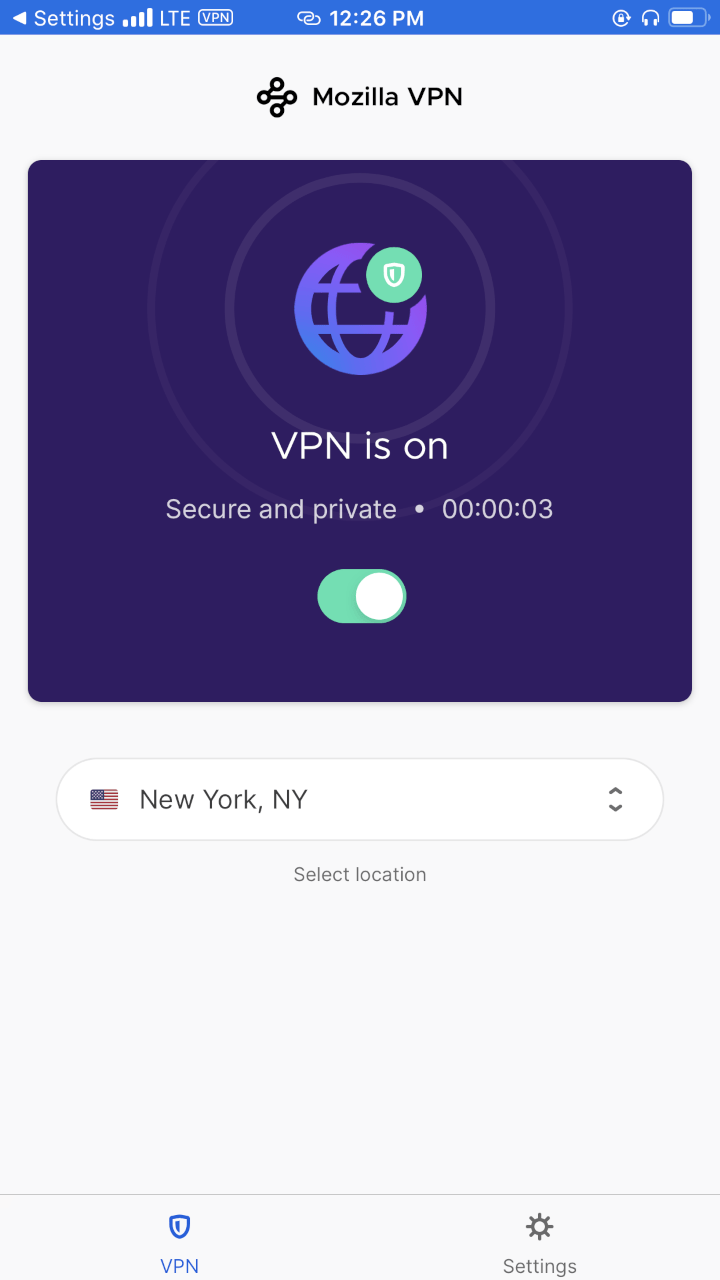
But that isn’t the case everywhere. There are a handful of countries across the globe where VPN use is severely restricted, or even illegal.
Countries Where VPNs Are Illegal
While the exact laws vary, VPNs are banned in some form or another in these countries. If you’re visiting these countries or if you live in them, we strongly suggest you do your own research about the legality of VPNs there.
- Belarus
- China (while illegal for many uses, there are great VPNs for Chinese tourists)
- Iran
- Iraq
- Oman
- Russia
- Turkey
- Uganda
- United Arab Emirates (to get a VPN there, read our list of the best UAE VPNs)
- Venezuela
There are also several countries with strict internet censorship laws; while they don’t ban VPNs outright, anyone who uses them will be at risk of hostility from the government:
- North Korea (but not its neighbor to the south, South Korea. See our list of the best VPNs for Korea)
- Cuba
- Egypt
- Vietnam
- Bahrain
- Turkmenistan
- Myanmar
- Syria
- Libya3
While VPNs may be illegal or discouraged in certain countries, you can still connect to servers in these countries with the right VPN. However, VPN usage in restricted areas comes with its own set of risks, depending on which country you’re in and which VPN you choose.
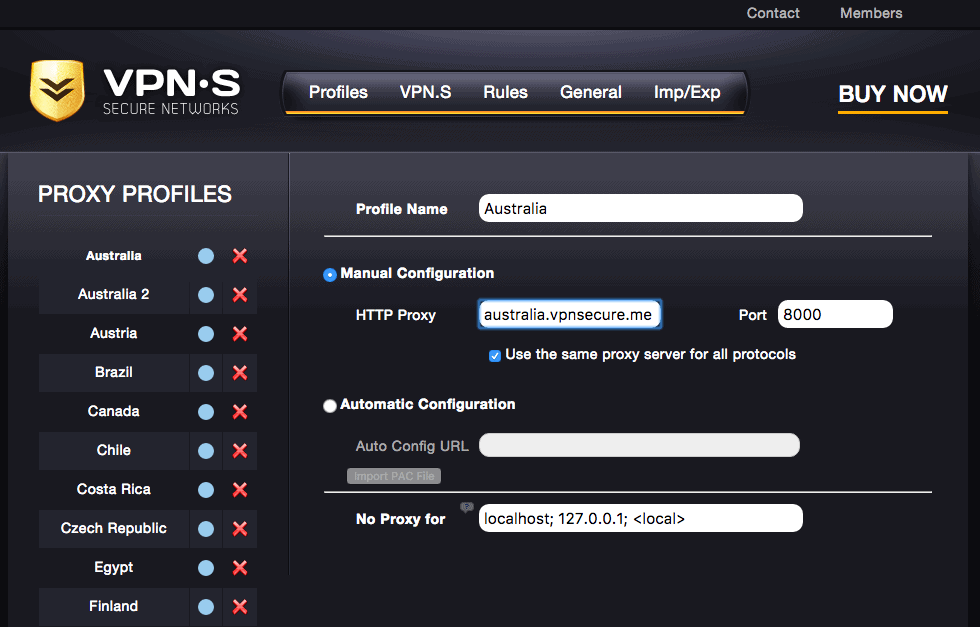
Are VPNs Safe to Use?
Not all VPNs are safe to use. To minimize your risk, look for the following in your VPN search:
- Strict logging policy: Most VPNs claim that they do not keep logs of any kind, but what they’re referring to specifically is logs of web activity. While most VPNs won’t log any of the websites you visit, some will log your devices’ IP addresses or personal information like your name and email. Make sure that you use a VPN that doesn’t log any of your personal information; ideally, it logs only an email address and anonymized payment information.
» Did You Know: Best No-Logging VPN
- Five Eyes nonmember: Five Eyes, Nine Eyes and 14 Eyes is an international surveillance alliance whose member countries can legally spy on their citizens. Make sure that the VPN you choose is headquartered in a nonmember country like the Seychelles so that the company can’t be legally forced to hand customer data over to the government.
- Strong encryption methods: The VPN should also use an encryption method such as AES-256; the U.S. military and government trust it, so it’s good enough for you as well.
The best way to stay out of legal hot water is to not use a VPN in a country where their use is forbidden, and to to not use a VPN to engage in illegal activity online, including torrenting. It’s fairly rare that people get into legal issues only for using a VPN, but it’s not unheard of. Here are a few of the cases we were able to uncover.
- 2020: A man in China was given an unspecified “administrative penalty” for bypassing the country’s Great Firewall.
Did You Know: In China, the Great Firewall only allows citizens to access government-approved websites, greatly restricting what people can do online.
- 2019: Someone who sold VPN services was sentenced to five and a half years in prison and fined $76,000 USD.
- 2017: A man was fined a little over $155 USD for using a VPN.4
We don’t intend to scare you by listing these punishments; rather, these are worst-case scenarios. Still, these types of punishments make choosing the right VPN for travel more important than ever before.
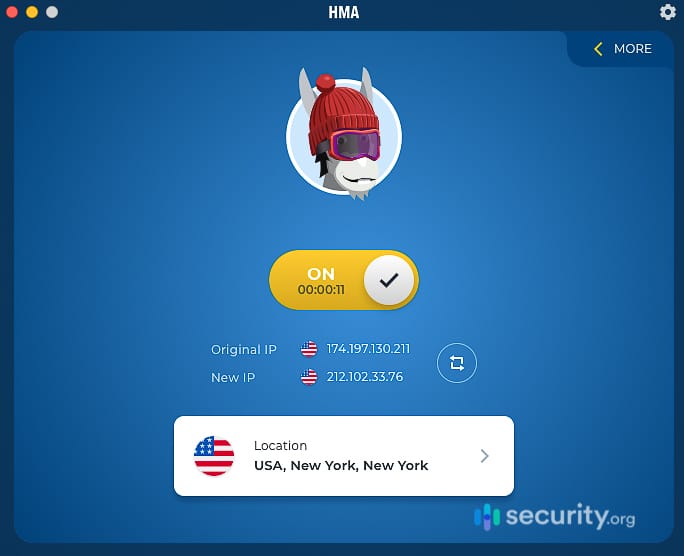
Using VPNs for Illegal Activities
Sometimes, it’s less about VPNs being illegal in a country and more about the things people do while connected to a VPN that lands them in legal hot waters.
Remember this: Using a VPN by itself is not illegal, but doing illegal and illicit online activities will always be illegal. For example, a lot of folks use VPNs to hide their illegal digital pirating, which violates the Digital Millennium Copyright Act. It’s still illegal and punishable by law. That’s why we only recommend using VPNs to torrent non-copyrighted content.5 While a VPN may hide activity, it doesn’t change the legal status of the acts.
» Learn About: Using a VPN for Torrenting
Why People Use VPNs Legally
There are multiple legally sound reasons why people use VPNs, according to our VPN usage study. That includes:
- General privacy
- General security
- Protection from public Wi-Fi networks
- Increased security during online shopping
- Hiding information from ISPs and Google
- Streaming content from other countries’ servers.
Can You Be Fined or Prosecuted for Using a VPN?
Essentially, if you’re using a VPN in a country where they’re legal for legal activities, then you have nothing to worry about. However, if you’re in a country where VPNs are illegal and you’re found out, then yes, you could be fined or prosecuted.
Video Breakdown
Gabe Turner, an attorney and Security.org’s Chief Editor, discusses the legality of VPNs in this video.
How Do VPNs Work?
VPNs work by sending a user’s device IP address and web traffic through an encrypted tunnel before it reaches the internet. This prevents ISPs and hackers from tracing their online activity. Some VPNs even encrypt this information twice or more times, a process called multi-hop encryption. Once the user connects to a VPN, it will replace the device’s IP address with another one to hide their location, which is why it may seem to websites that the user is in a different country. To learn more, read our VPN guide.
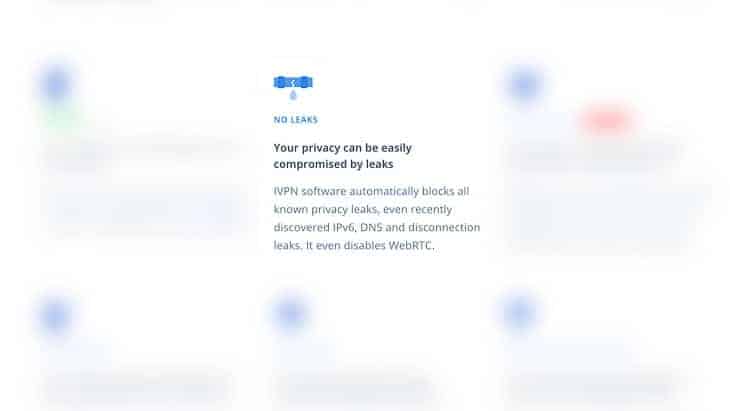
Is Using a VPN Necessary?
Depending on where you are and what you want to do online, a VPN may or may not be necessary. For example, if you are on your secure home network and simply want to watch your country’s Netflix library, then a VPN won’t be of much use. However, if you are on a public Wi-Fi network, want to watch another country’s Netflix library, or simply don’t want your ISP to know your online activity, then yes, VPNs are necessary. Ultimately, it’s a personal choice; if you want privacy online, a VPN is the simplest and most straightforward method.
» Further Reading: ISP Throttling
Recap
Unless you’re doing anything illegal, using a VPN in the U.S. is perfectly legally sound. However, if you’re using a VPN in a country where it’s not legal, it’s important to download one of the best VPNs in terms of privacy. While we can’t condone any illegal activity, there are ways to get around government restrictions to access a more free and open internet, and VPNs are at the forefront.
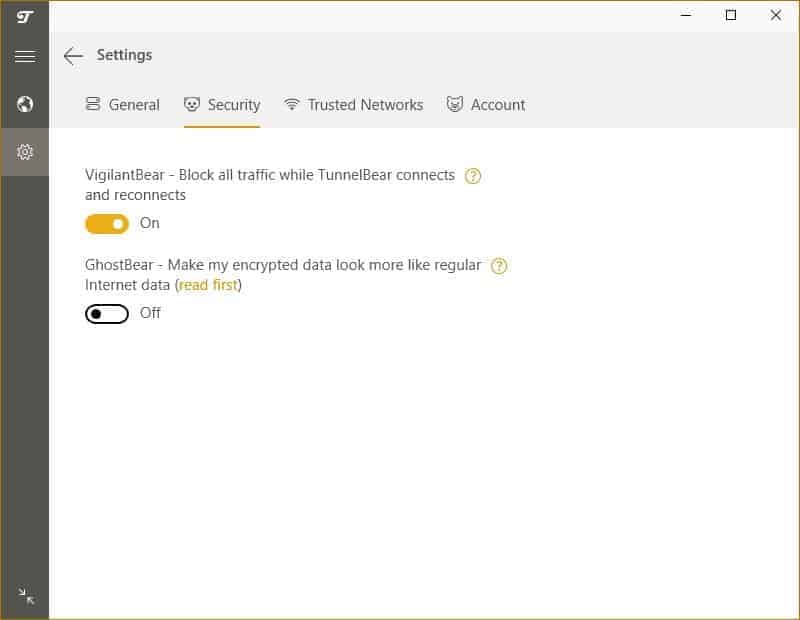
Frequently Asked Questions
Not so fast. Here is some more information about the legality behind VPNs.
-
Can I get in trouble for using a VPN?
Whether or not you can get in trouble for using a VPN depends on what country you’re in. If you’re in the U.S., VPNs are legal, so no, you can’t get into trouble for using them. However, if you’re in a country that bans VPNs, like China, then yes, you can get into trouble for using them.
-
Is using a VPN legal in Australia?
Using a VPN is legal in Australia.
-
Is using a VPN to watch Netflix illegal?
In the U.S., using a VPN to watch Netflix is legal; however, Netflix does block many VPNs, so you may or may not be able to get access.
-
Is it legal to use a VPN in the U.K.?
It is legal to use a VPN in the U.K.
